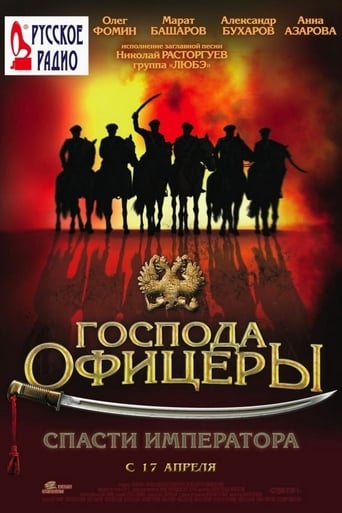ericoblair
Soviet cinema (and other art forms) spent 70 years mythologising the Russian Civil War of 1918-1921, with special attention paid to creating Bolshevik heroes (galore) and demonising their opponents (of all stripes). The cinematically tiresome and historically ludicrous results are still showing on Russian television, and will likely be for decades-- which makes one wonder what children growing up without ever having known the Soviet Union can possibly make of them. Why, they must ask themselves, are the Bolsheviks still heroes on TV when we know they weren't in history? A film like Gospoda Ofitsery: Spasti Imperatora (Officers and Gentlemen: To Save the Emporer) makes a modest contribution toward redressing the balance. It's far from great cinema; it is, instead, cinema that tries hard, if you will, to entertain and de-ideologise at the same go. Here and there it succeeds. It clearly had a respectable budget and some moderately well-known actors, plus a special effects unit that could do a creditable job with battles scenes and explosives.The plot involves a commando group of officers detailed to save the lives of the imprisoned Romanov family. There are several sequences which tell a good story in themselves, but the whole of the film is really not impressive or sustained movie-making. Briefly put, the signal virtue of this production is its point of view: the heroes are the actual good guys and the villains the actual bad guys. And in the context of Russian history-as-presented-in-the-cinema, that counts for a good deal.One hopes that another Russian Civil War blockbuster, "Kolchak" -- due to be released shortly -- can add rather more to this step in the right direction.

